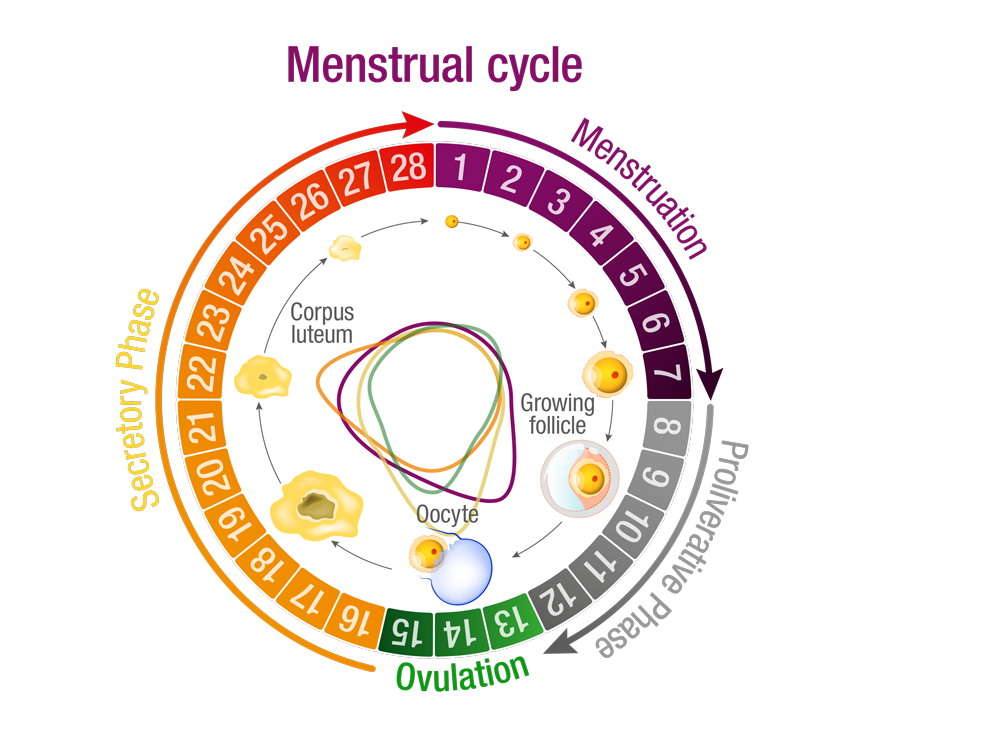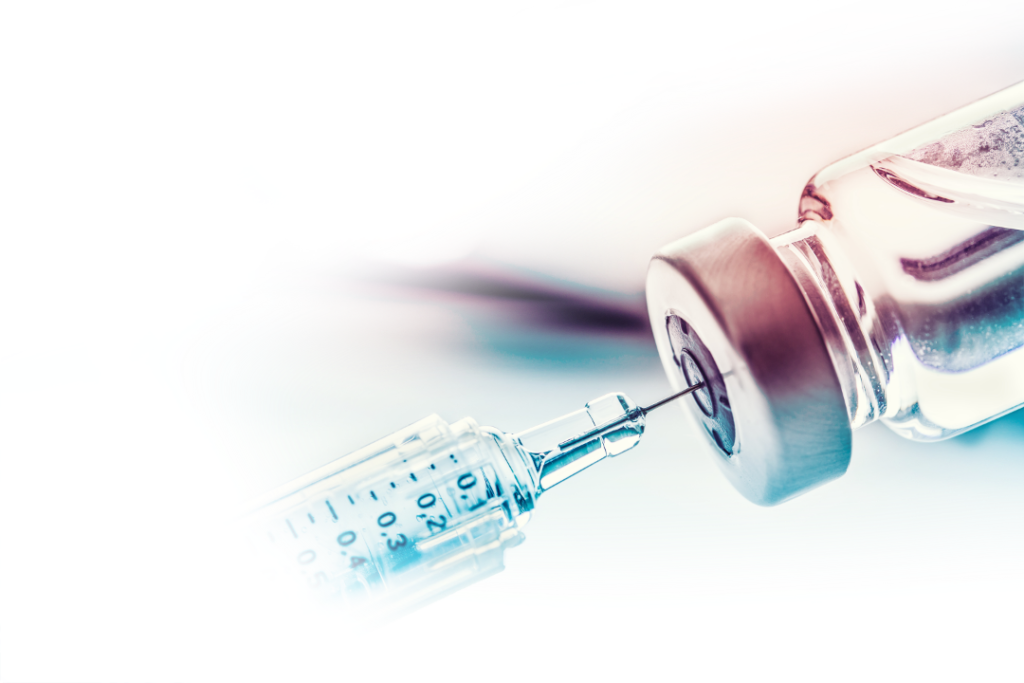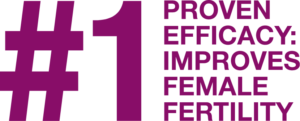In order to fulfil the desire to have children, medicinal support in the form of hormone therapy may perhaps be necessary. This is often provided as part of IVF treatment. The aims of hormone-based treatments include the promotion of ovary activity, ensuring regular ovulation and ensuring egg cell maturation. Furthermore, it involves the implantation of the egg cell and a positive influence in the first weeks of pregnancy.
Why hormone therapy?
The priority is (re)establishing the hormonal balance. The thyroid hormones (pituitary gland hormones), the hormones of the ovaries and adrenal gland have an influence on female fertility. The production of the mentioned hormones and the cooperation of the respective secreting glands are crucial for a regular cycle consisting of menstrual bleeding and ovulation.
In order to achieve cycle stabilisation, medicinal support may be necessary. Hormones provide a possibility to bring the cycle back into rhythm or stimulate the functioning of the ovaries so that egg cells are produced. However, a detailed medical examination must be carried out beforehand because hormone therapy is not usually the first method of choice. It should be taken into account that hormones also have various side effects. A lifestyle change is often the first step. In this context, FORTELLETM+ OMEGA-3 should also certainly be considered because this study-proven product can support female fertility in a natural way.
Studies have proven that FORTELLETM+ OMEGA-3 can support female fertility in a natural way.
There may be clear indications for hormone treatment. Fertility can sometimes be improved by treating the thyroid gland since hypothyroidism (underactivity of the thyroid) may have been diagnosed as the cause of infertility. Hormone treatment can also be effective in case of ovarian insufficiency (ovarian weakness). Since the maturation of the follicles is disrupted in this diagnosis, ovulation can no longer take place so menstruation does not occur. If there are sufficient viable precursors for egg cells, ovarian function can possibly be restored by administering hormone products.
The same objective is to be achieved if prolactin production is too high (hyperprolactinaemia) and causing a hormonal imbalance. This hormone stimulates milk production in the mother after birth and simultaneously supresses ovulation. If pregnancy does not occur, then ovarian function and the ability to conceive may be severely restricted by excessive prolactin production.
FORTELLETM+ OMEGA-3 can be the optimal nutrient-based supplementation in the context of hormone treatment. A clinical study at the Medical University Hospital of Vienna demonstrated this in the context of IVF treatment.
Treatment options in the case of diagnosed infertility:
The chances of success very much depend on personal circumstances. This includes the age of the man and woman, the type of fertility disorder and psychological aspects. The question of how many treatments a person is willing to undergo also plays a role.
The treatment approach is determined by a so-called phased plan that depends on the individual problem. FORTELLETM+ OMEGA-3 and PROFORTIL® can be supportive in each treatment phase with targeted diet management and thus even enable a reduction of the phased plan under certain circumstances. It should be expressly noted that FORTELLETM+ OMEGA-3 and PROFORTIL® increase the probability of a successful pregnancy. If IVF treatment is necessary, both products can be taken in preparation and during treatment.
Cycle monitoring:
The aim here is to establish the specific time of ovulation and define the fertile phase. In addition, the fertile days are very closely monitored by ultrasound and hormone analysis. In this way, the physician can determine the number, size and even maturity of the follicles.
In this respect, FORTELLETM+ OMEGA-3 can support the female body to optimise the cycle rhythm in a natural way and best prepare for conception and pregnancy.

The hormone-based stimulation therapy:
Before going into this topic in more detail, it should be noted that the intake of FORTELLETM+ OMEGA-3 and PROFORTIL® and the associated diet management can increase the chance of successful fertilisation and pregnancy, even as part of IVF treatment. A positive effect on the success rate is therefore self-evident.
The hormone-based stimulation therapy is used in infertility treatment and is considered a precursor to artificial insemination because mature egg cells must be present for this treatment. Various stimulation protocols (procedures) can be taken into account. Following an examination of the ovaries and an analysis of the hormone levels, the treating physician can select the individually suitable protocol. The treatment is monitored by ultrasound and hormone analyses to keep a close eye on the growth and maturity of the follicles.

The hormonal stimulation of the ovaries is also carried out prior to artificial insemination if the man’s fertility is impaired rather than the fertility of the woman. This stimulation should ultimately ensure that several egg cells mature at the same time so that they can then be fertilised by in vitro fertilisation (IVF) or Intracytoplasmic sperm injection (ICSI) and thus the desire to have children is fulfilled. In this context, it is all the more important that the man also has the optimal conditions for successful fertilisation:

In connection with IVF treatment, the man’s sperm quality should be taken into consideration. An increased proportion of DNA breaks in sperm cells can have a significant impact on the success rate. Clinical studies have shown that the intake of PROFORTIL® can reduce the risk of DNA breaks in sperm cells. A study at the Medical University Hospital of Vienna showed that a combination with diet management through FORTELLETM+ OMEGA-3 in the context of IVF treatment (ICSI) can lead to better results.
The risks of hormone therapy:
Side effects include hot flushes, dizziness and visual impairment. Close monitoring by the treating physician is therefore essential. Ovarian hyperstimulation syndrome (OHSS) rarely develops, which is characterised by enlarged ovaries or too many follicles or follicles that are too large. The symptoms include a bloated stomach, nausea, pain and shortness of breath. If the side effects become too severe, hospitalisation may be required.
FORTELLETM+ OMEGA-3 for women and PROFORTIL® are suggested for all those who wish to fulfil their long-held desires to have children and have opted for hormone therapy after consulting a physician. Both products can demonstrably support fertility through the targeted use of micronutrients, for which there is an increased need, and thus increase the chance of a successful pregnancy.



